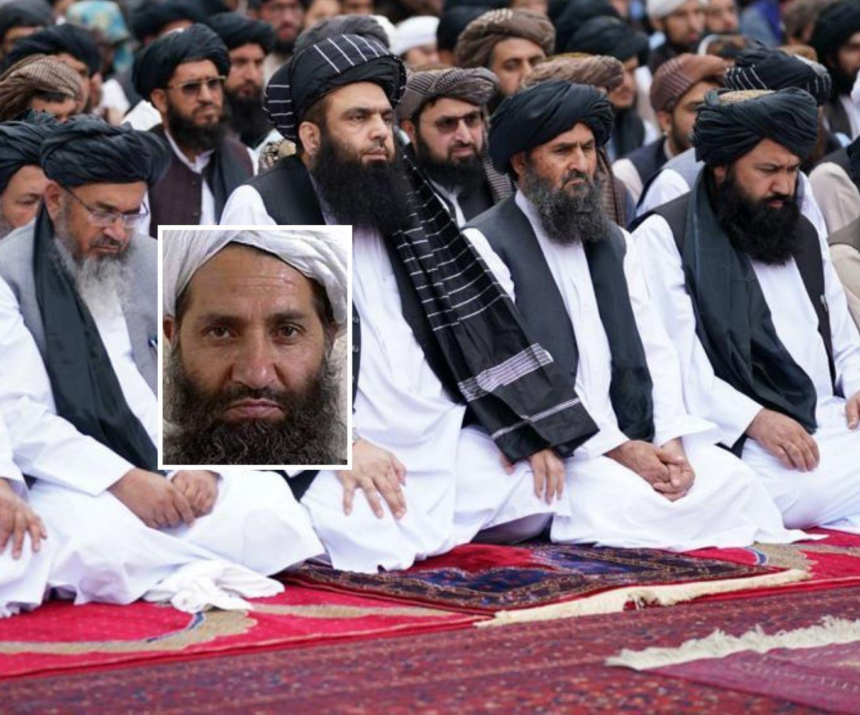RASC News Agency: The Taliban have long branded themselves as defenders of the Islamic Ummah and guardians of Sharia law. Yet, beneath this façade of religious sanctity, a different truth is rapidly emerging.
The group’s ideological and administrative foundation is no longer rooted in universal Islamic values, but in Pashtunwali the archaic tribal code of Pashtun conduct. This shift marks not a spiritual awakening, but an ethnic regression: a return from political Islam to the raw, exclusionary ethos of tribal nationalism.
In an unusually sharp statement issued on Sunday, November 9, Pakistan’s Ministry of Foreign Affairs accused the Taliban regime of “stoking Pashtun nationalism” across the Afghan-Pakistani frontier. The ministry charged that Taliban leaders were actively exploiting ethnic kinship among Pashtuns on both sides of the Durand Line to incite anti-Pakistan sentiment and revive the irredentist fantasy of “Pashtunistan.”
The statement read:
“Certain factions within the Taliban regime emboldened by foreign patrons are engaged in deliberate propaganda to promote Pashtun nationalism within Pakistan. This reckless campaign undermines regional stability and distorts the historical reality that Pashtuns are a vibrant and integral part of Pakistan’s national fabric.”
Islamabad further noted that the Pashtun population in Pakistan far exceeds that of Afghanistan, emphasizing that the community has played decisive roles in the country’s military, bureaucracy, and politics.
The Taliban’s rhetoric, Pakistan warned, seeks to fracture this social cohesion and transform tribal identity into an instrument of geopolitical agitation.
What Islamabad calls “ethnic provocation” is, in reality, the centerpiece of the Taliban’s domestic power strategy: the systematic conversion of Afghanistan into a mono-ethnic, Pashtun-dominated state.
Political analysts and independent observers in Kabul report that since the Taliban’s return to power in August 2021, Afghanistan’s administrative, military, and cultural structures have undergone rapid Pashtunization.
Key ministries, provincial governorships, army commands, and even universities are now overwhelmingly controlled by Pashtun Taliban members.
In non-Pashtun provinces such as Badakhshan, Bamyan, Takhar, and Daikundi, local Tajik, Hazara, and Uzbek officials have been dismissed and replaced by Taliban loyalists from the southern tribal heartlands.
What once resembled a fragile republic is now being reconfigured into an ethnic autocracy.
Merit and qualification have been replaced by lineage and tribal loyalty. The Pashtunwali code anchored in obedience to elders, clan honor, and revenge has supplanted Afghanistan’s constitutional framework.
“The Taliban have replaced the constitution with the code of the tribe,” one Kabul-based scholar told RASC. “They rule not by law, but by bloodline.”
Behind the Taliban’s self-proclaimed piety lies a cynical political design: the construction of a theocratic ethnocracy a regime that merges divine justification with ethnic supremacy.
In this hybrid order, religion is not the goal but the tool; Islam is wielded as an ideological shield to sanctify ethnic exclusivism and silence dissent.
Under the Taliban’s rule, ethnic minorities have been systematically marginalized, cultural diversity suffocated, and women erased from public life.
The regime that once claimed to fight for moral order has instead imposed a reign of tribal absolutism cloaked in the language of faith.
“This is not governance inspired by Islam,” remarked an analyst from the Afghanistan Institute for Peace Studies. “It is governance inspired by a tribal patriarchy that uses Islam to justify its dominance.”
The Taliban’s embrace of Pashtunwali represents more than a sociocultural revival; it is a deliberate political weapon.
Through this ancient tribal code, the group enforces a rigid hierarchy of loyalty and obedience.
Those outside the Pashtun lineage are treated as second-class citizens, while dissent within the tribe is branded as betrayal of the faith.
This system allows the Taliban to consolidate control through a dual legitimacy religious rhetoric for the masses, and tribal discipline for the insiders.
This fusion has created a new kind of authoritarianism: one that is spiritually absolutist yet ethnically exclusionary, anti-modern yet strategically calculated.
It seeks not to unite Afghanistan, but to domesticate it to reshape a pluralistic society into the image of one tribe’s collective ego.
The ideological collision between Islamabad and Kabul has laid bare two competing visions of Pashtun identity.
For Pakistan, Pashtuns are a cornerstone of national integration; for the Taliban, they are a transnational ethnic constituency that transcends borders and states.
This divergence has escalated into a strategic confrontation.
Pakistan’s foreign ministry has declared that “Islamabad will no longer be deceived by hollow assurances,” vowing to safeguard its sovereignty against “cross-border terror originating from Afghan soil.”
It noted that attacks from Afghanistan since 2021 have become “documented and undeniable,” adding that “the Taliban’s challenge is not incapacity but the absence of sincere intent to fight terrorism.”
Meanwhile, the Taliban accused Pakistan’s delegation at the recent Istanbul talks mediated by Turkey and Qatar of avoiding accountability for violence inside Afghanistan.
The talks collapsed without progress, deepening mistrust and fueling fears of renewed hostilities.
The Taliban’s ongoing transformation exposes a profound hypocrisy.
Once they promised to build an Islamic state guided by divine justice; now they preside over a tribal empire governed by inherited privilege.
Their policies have turned Afghanistan into an isolated enclave where religion is politicized, ethnicity weaponized, and ignorance institutionalized.
By replacing the inclusive concept of Ummah with the insular code of Pashtunwali, the Taliban have abandoned the very Islamic principles they claim to defend.
They have replaced faith with ethnicity, unity with exclusion, and moral authority with fear.
For millions of Afghanistani citizens Tajik, Hazara, Uzbek, Turkmen, and even dissenting Pashtuns this regime represents not liberation, but captivity.
The Taliban’s ethnocentric state-building has erased decades of fragile progress toward pluralism, gender equality, and democratic participation.
Schools remain closed for girls, media silenced, civil servants purged, and the economy strangled by corruption and incompetence.
Afghanistan today is ruled not by an Islamic government, but by an ethnic oligarchy masquerading as divine order.
And as the Taliban tighten their tribal grip, they drag an entire nation backward into the suffocating shadow of its most primitive past.
The Taliban’s return has not resurrected faith; it has resurrected feudalism.
Their governance model fuses medieval patriarchy with modern propaganda, creating a regime both regressive and resilient.
It is a system where the Qur’an is quoted but justice denied, where ethnicity determines destiny, and where the sacred language of Islam is exploited to justify political tyranny.
If unchallenged, this ethno-tribal autocracy will not only suffocate Afghanistan’s plural identity but destabilize the entire region.
The world must see the Taliban not as Islamic reformers, but as tribal supremacists cloaked in religious rhetoric heirs not of spiritual enlightenment, but of historical oppression.






